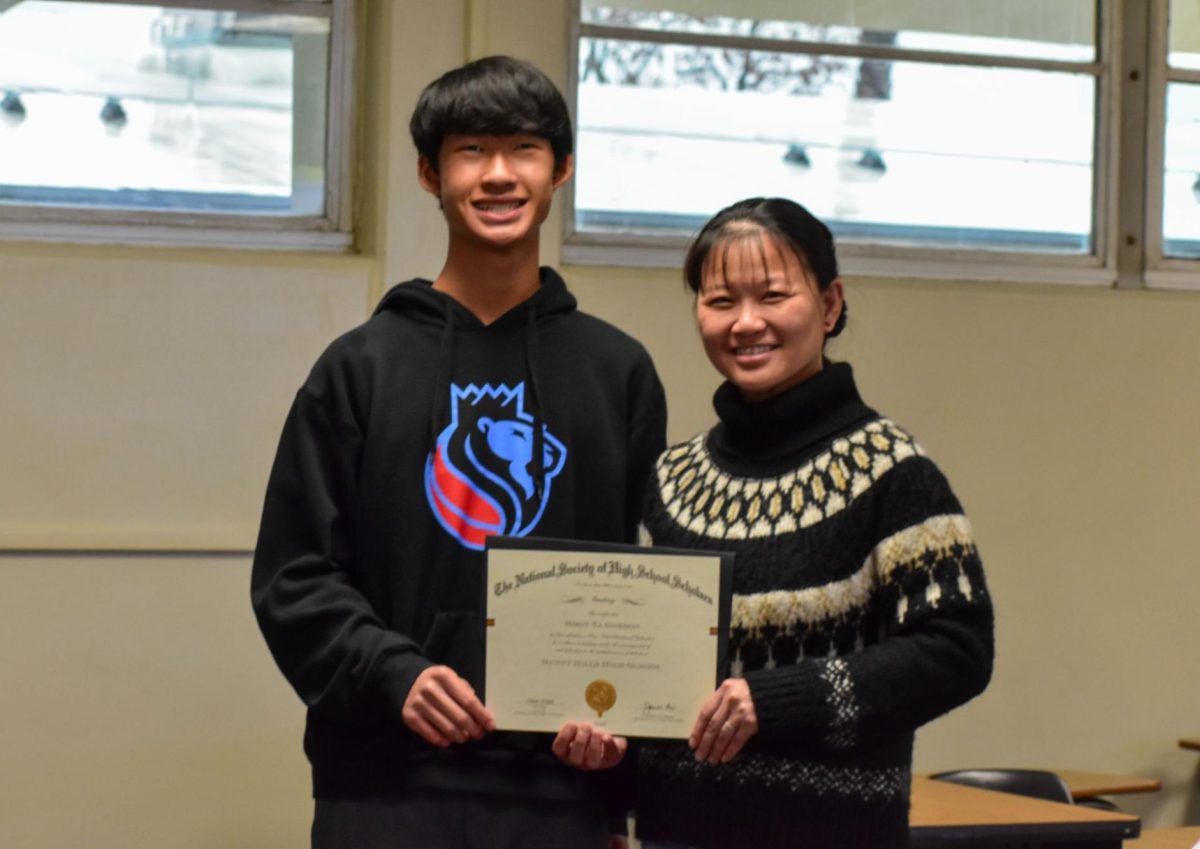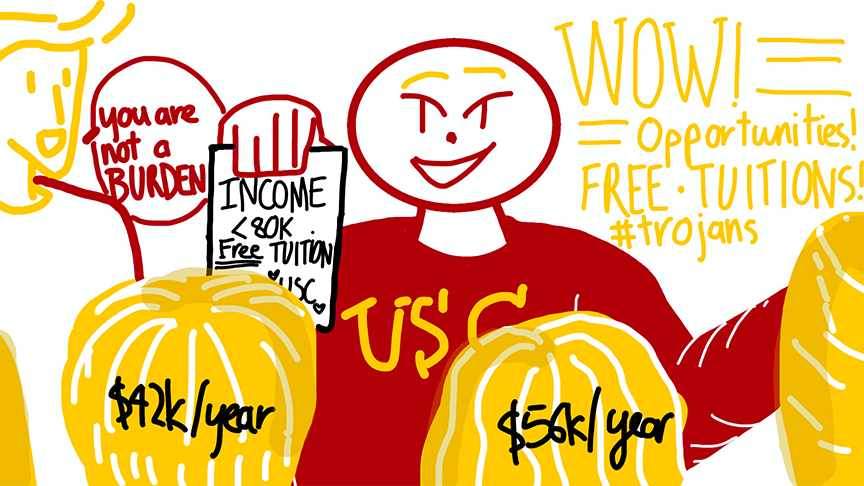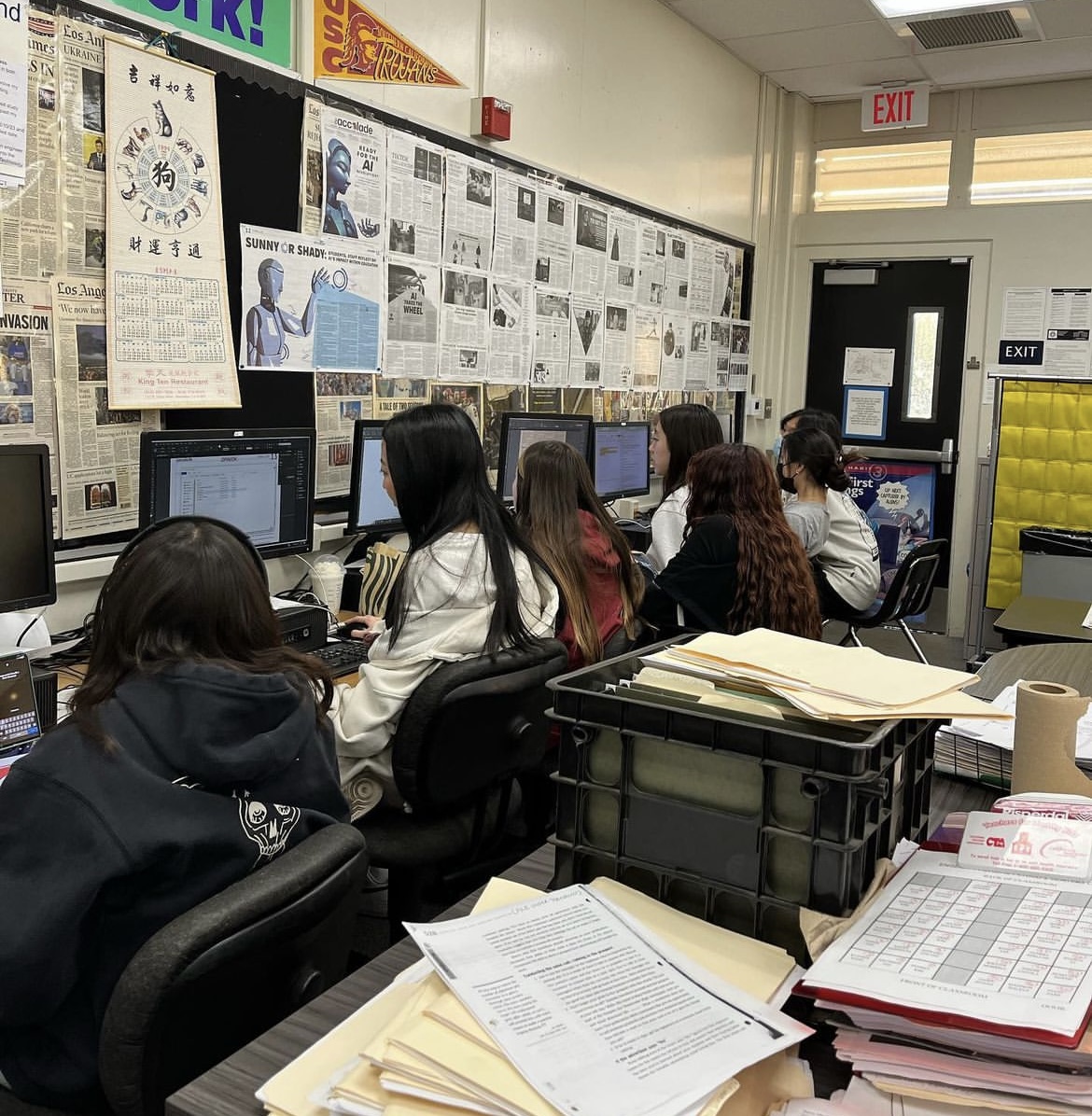As students reach their junior and senior years, an inevitable issue they will confront is whether to apply to public or private universities. They choose to apply to the former not because the latter provides a lesser education, but because of the high cost of tuition that can put a financial burden on their families.
According to businessinsider.com, the $57,208 tuition for in-state students makes Columbia University in New York the most expensive Ivy League school in the nation.
Over here on the West Coast, the most expensive private institution for higher learning in California is Harvey Mudd College in Claremont with an in-state tuition of $56,331, according to collegecalc.org. USC is the second most expensive with in-state tuition at $55,320.
When Carol Folt took over as USC’s new president earlier this year, Folt finally did what her male predecessors dared not to, which was to reach out to students whose families would not be able to pay for such a high cost of tuition. On Feb. 20, she announced that students admitted for the 2020-2021 school year and beyond would not have to pay a single dime for classes so long as their families make $80,000 or less annually.
“We really want this to be an institution where great students can attend regardless of their financial background,” the university’s president said in a Los Angeles Times video clip. “Education should be the great bridge across income that really is the equalizer and makes our talented, hardworking students able to make real contributions.”
This move will definitely put USC on prospective students’ radars and will likely shatter the image of those who attend this campus as being a bunch of spoiled rich kids, hence the moniker, “University of Spoiled Children.”
Unfortunately, USC is not the first university to offer free tuition for students coming from mid- to lower class income families. In 2019, Yale told admitted students they didn’t have to pay for their education so long as their parents made $75,000 or less annually. The $80,000 or less threshold that USC set also pales in comparison with what Stanford — considered the Ivy League school of the West — did for its incoming 2020-2021 students.
The Cardinal board of trustees agreed last December to charitably raise annual income levels of students’ families from below $125,000 to below $150,000 to be eligible for free tuition.
Nevertheless, what USC’s Folt did still deserves some recognition given some of the data out there about families’ income levels.
The median household income, according to departmentofnumbers.com, is $71,805 as of 2017. The level USC has based its free tuition from is fair as it includes families slightly above the median as well. According to the National Association of Student Financial Aid Administration’s website, low income students are unable to attend most universities. They are unable to afford the cost of education, meaning that they have to resort to junior college or enrolling in a vocational college.
The policy at USC does not include room and board, food or other secondary expenses. This contrasts once again with Stanford, where secondary expenses are included. Not covering the secondary costs of attending USC may deter students from applying because they still may not be able to meet the financial requirements to attend. That’s something that Folt might want to tackle in her second year as head of the institution.
Another possible drawback to this deal is that students who qualify for free tuition may have had high motivation in high school to be accepted to an esteemed place like USC, but since they are attending college for free, they may start to slack off and not show as much of an interest in school anymore. This can be seen in some of the at-risk students in public high school ー since the education is free but compulsory, they tend to not care about their grades as much as they would if their parents had to pay for it.
The deal that Folt announced has not been spelled out in detail, but one way to ensure that incoming Trojans don’t take advantage of the school’s generosity is to set minimum GPA levels that qualified students would need to meet to continue receiving a free education. That’s what government funding sources like Pell Grants have in place.
As the first female president at USC, Folt has wisely opened the university’s doors to include a broader range of students, thus allowing qualified individuals to fulfill their college dreams. It’s comforting to know that this newly hired administrator wants to apply what the institution’s motto for school spirit is. It wants to “fight on” to provide more students with the education they deserve, likely drawing them away from rival UCLA.







